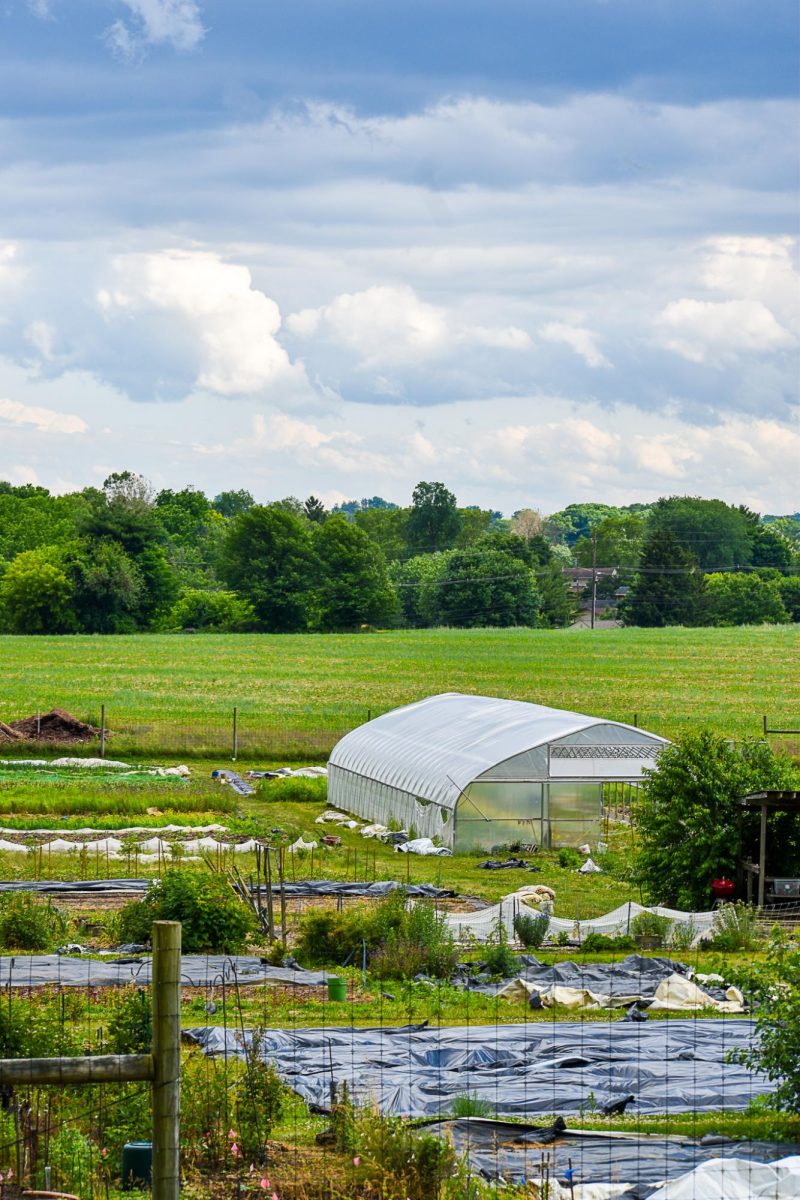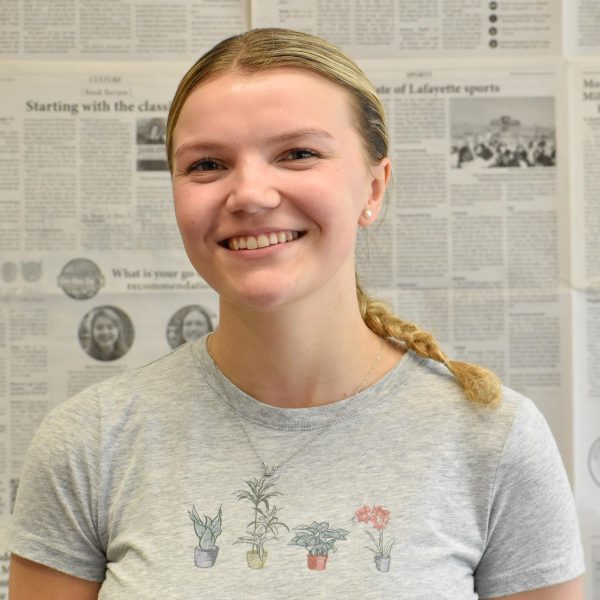Lafayette College’s Office of Sustainability expanded composting beyond dining halls this summer and hopes to begin using the compost in LaFarm soil fertilization by November, a process previously slated to start earlier in the year.
Composting buckets appeared in Lafayette’s buffet-style dining halls last fall, returning to campus after a three-year hiatus.
This fall, composting is available in all Lafayette dining locations with a kitchen, according to Director of Sustainability Delicia Nahman. With this change, students are now able to compost waste at Skillman Café, ECO Café, Gilbert’s Cafe and Cinco.
Wilson Hong ’26, a composting intern in the Office of Sustainability, said that in addition to new compost options at Lafayette dining venues, Hogg Hall and select Greek life houses are also participating in the compost program.
Nahman added that the Office of Sustainability hopes to continue expanding compost options for “Greek houses and residential halls and off-campus houses,” in addition to administrative offices on campus.
To date, none of the compost produced has been useable as fertilizer, according to Lafayette’s manager of food and farm, Josh Parr. This was due to an unbalanced ratio between different types of organic materials.
However, Parr is optimistic that the compost will be useable at LaFarm by later this fall.
According to Nahman, composting has been used on LaFarm for sustainable processes such as “woodchip pathways.”
The composting program has also faced changes with Melissa Adamson, the former compost manager, leaving the college this summer to return to her home state of California. Vincent Delherey is now the office’s interim compost program manager.
The Office of Sustainability has interviewed candidates for a full-time position, but according to student interns, the position has yet to be filled.
Despite the delays, Delherey remains positive.
“Lafayette has a reputation when it comes to being one of the major composting schools,” he said.
He also touted students and interns for their work throughout the process, calling them “the ones who really drive the program.”
“This is really a college initiative that can only improve with more education, but also feedback and suggestions for improvement,” Nahman said.
























































































































